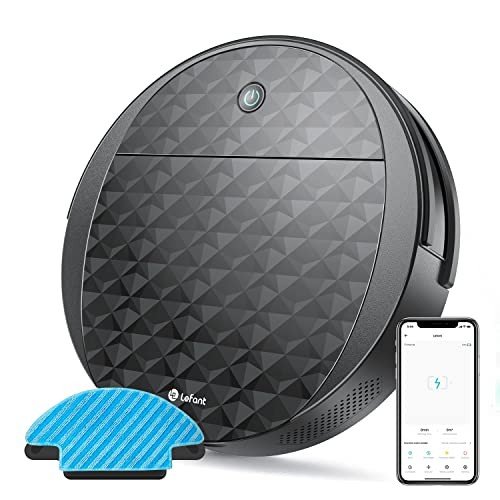How To Explain Robotic Vacuum To Your Mom
The Rise of the Robotic Vacuum Cleaner: Revolutionizing Home Cleaning
In the realm of family devices, robotic vacuum have become among the most significant developments recently. mop and vacuum robot offer convenience and efficiency, enabling homeowners to keep cleaner living spaces without the drudgery of manual vacuuming. This short article explores the advancement, performance, benefits, and factors to consider relating to robotic vacuum cleaners, in addition to providing insights through data tables and frequently asked questions.
A Brief History of Robotic Vacuum Cleaners
The journey of robotic vacuum started in the late 20th century, with early prototypes stopping working to make considerable strides in homes. However, improvements in technology caused the intro of more refined designs in the early 2000s. Business such as iRobot and Neato played an essential role in popularizing these wise home gadgets.
Development Timeline of Robotic Vacuum Cleaners
Year
Milestone
1996
Release of the very first robotic vacuum, the ELECTROLUX TRINITY
2002
iRobot introduces the Roomba, a widely acknowledged design
2012
Intro of models with advanced mapping capabilities
2020
Incorporation of synthetic intelligence for enhanced navigation
2023
Designs with incorporated clever home connectivity and app control
How Robotic Vacuum Cleaners Work
Robotic vacuum utilize a mix of sensing units, mapping innovation, and expert system to navigate and clean various surface areas efficiently. Here's a simplified summary of their core performance:
Sensors: Equipped with infrared or ultrasonic sensors, these devices can find challenges, cliffs, and dirt, enabling them to navigate through spaces without crashing into furnishings or toppling down stairs.
Navigation: Most contemporary robotic vacuum cleaners incorporate clever mapping innovations, enabling them to map out the home design and optimize cleaning courses.
Cleaning Mechanism: Using brushes and suction power, robotic vacuums gather dirt, dust, and debris from numerous floor types, including carpets and hardwood.
Charging and Cleaning Schedules: After finishing a cleaning session or when their battery runs low, these robotics instantly return to their charging dock. Users can set cleaning schedules through smart device apps, assisting maintain a neat home effortlessly.
Benefits of Robotic Vacuum Cleaners
Robotic vacuum cleaners provide many advantages over traditional vacuuming techniques. Here are a few of the essential advantages:
- Time-Saving: Automated cleaning implies homeowners can assign their time to other activities.
- Convenience: Scheduling cleaning sessions permits a clean home without manual intervention.
- Thorough Cleaning: Many robotic models come with specialized brushes to deal with animal hair and supply deep cleaning on carpets and rugs.
- Smart Home Integration: Many systems work with smart home systems, using voice control and remote management.
Popular Features in Robotic Vacuum Cleaners
Feature
Description
Mapping Technology
Produces a digital map of the cleaning area
Mobile App Control
Offers users the ability to start/stop or schedule cleaning sessions remotely
Self-Cleaning
Some models have docking stations that can self-empty dust bins
Advanced Sensors
Identifies dirt more effectively and navigates much better
Voice Control
Suitable with virtual assistants like Alexa and Google Assistant
Factors to consider Before Purchasing a Robotic Vacuum Cleaner
While robotic vacuum cleaners use various advantages, prospective buyers need to consider a few factors before purchasing. Here are some points to remember:
Key Factors to Evaluate
Floor Type: Certain models carry out much better on carpets while others excel on difficult floorings. Buyers should choose versatile vacuums if they have actually blended floor covering.
Battery Life: Longer battery life permits extended cleaning sessions. Look for designs that can cover big locations without frequent charging.
Dustbin Capacity: A bigger dustbin minimizes the frequency of clearing, making cleaning less labor-intensive.
Noise Level: Some designs operate quietly, which is perfect for homes with babies or delicate pets.
Maintenance: Users ought to likewise assess the ease of upkeep, especially for filters and brushes.
Possible Drawbacks
- Cost: Robotic vacuum cleaners can be considerably more expensive than standard vacuums.
- Efficiency: While they efficiently preserve cleanliness, they might not constantly match the deep cleaning effectiveness of manual vacuums.
- Challenge Navigation: Some designs may battle with specific kinds of furnishings or cluttered locations, potentially leading to missed spots.
Frequently Asked Questions About Robotic Vacuum Cleaners
Q1: How frequently should I run my robotic vacuum cleaner?
A1: It generally depends on your household. For homes with pets or high foot traffic, running it everyday is useful. In less active homes, you may discover every other day is enough.
Q2: Can robotic vacuum work on carpets?
A2: Most robotic vacuums can clean carpets; however, functions such as suction power and brush style can considerably affect their efficiency on different carpet types.
Q3: Are robotic vacuum cleaners helpful for family pet hair?
A3: Yes, many designs are particularly designed to choose up pet hair and include specialized brushes to prevent tangling.
Q4: What occurs when the vacuum lacks battery?
A4: Most robotic vacuums automatically go back to their charging dock when their battery is low, guaranteeing they are prepared for the next cleaning session.
Q5: Can I control my robotic vacuum with my smart device?
A5: Yes, many robotic vacuum come geared up with mobile apps that permit you to arrange cleansings, monitor development, and get notices.
Robotic vacuum represent a considerable development in home-cleaning technology, combining benefit with performance to essentially change how homes keep tidiness. As developments continue to emerge, these devices are becoming increasingly capable, providing users not only time-saving services however likewise improved cleaning experiences. As the market continues to grow, prospective buyers are motivated to weigh the features, advantages, and considerations carefully to discover the best design tailored to their unique needs. Whether it's a hectic family, a pet lover, or someone looking for automation in their cleaning routine, there's likely a robotic vacuum cleaner that fits the expense.
